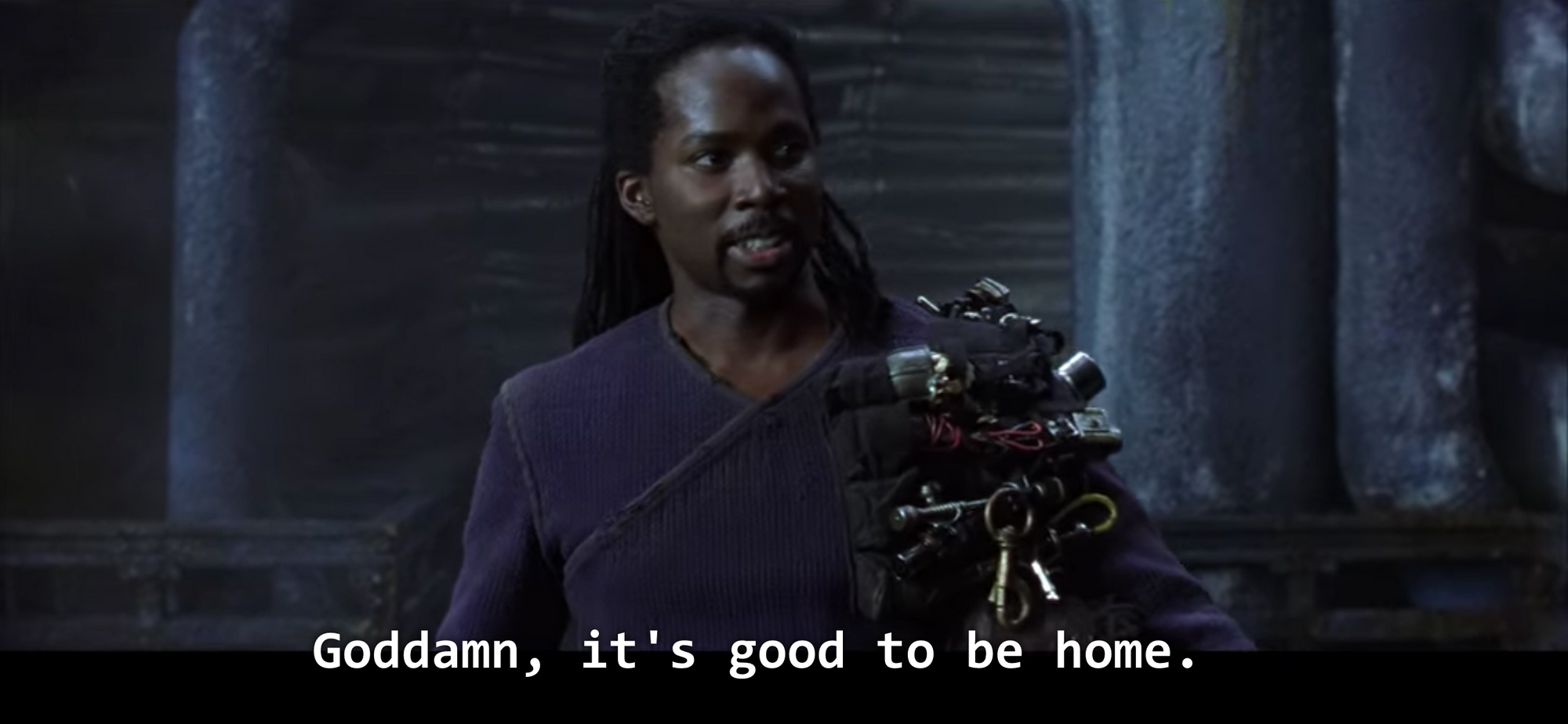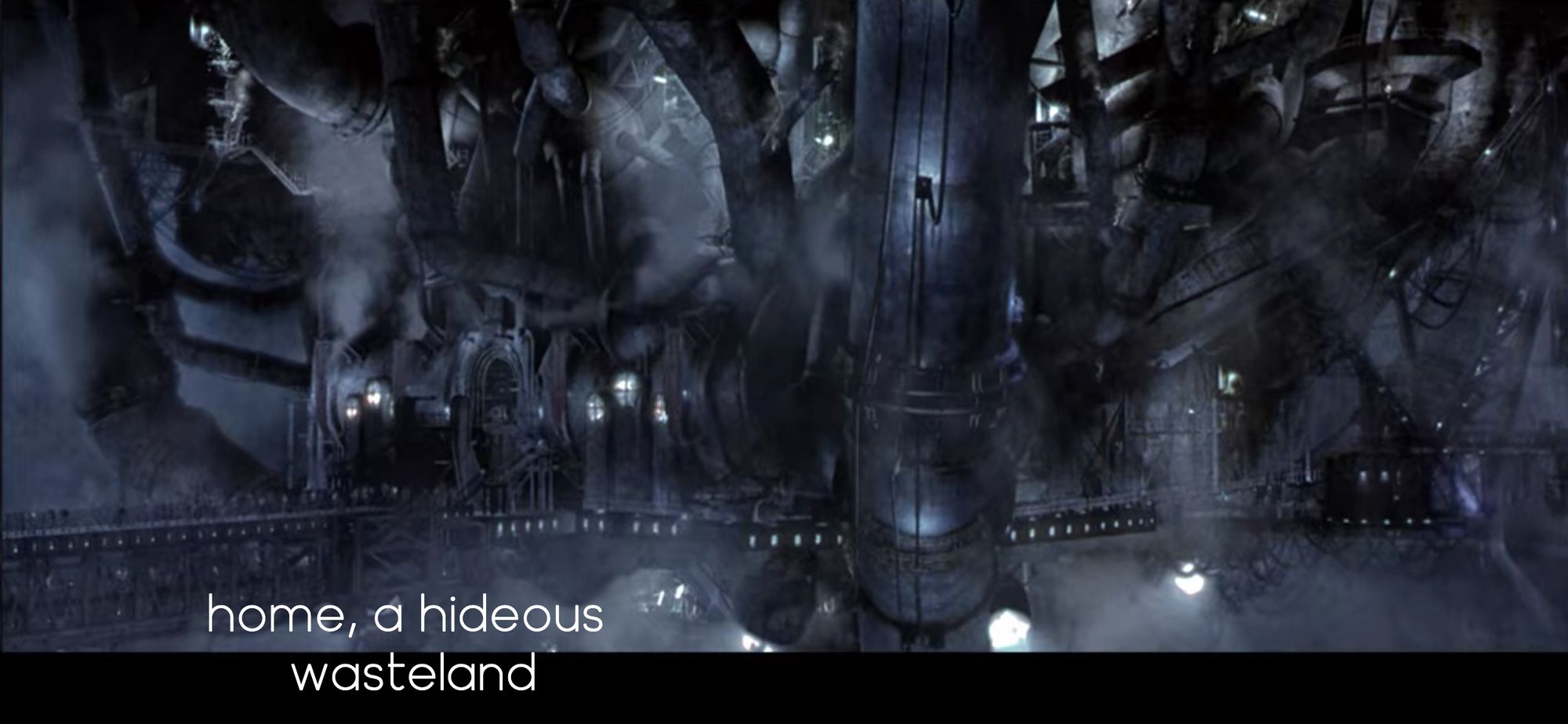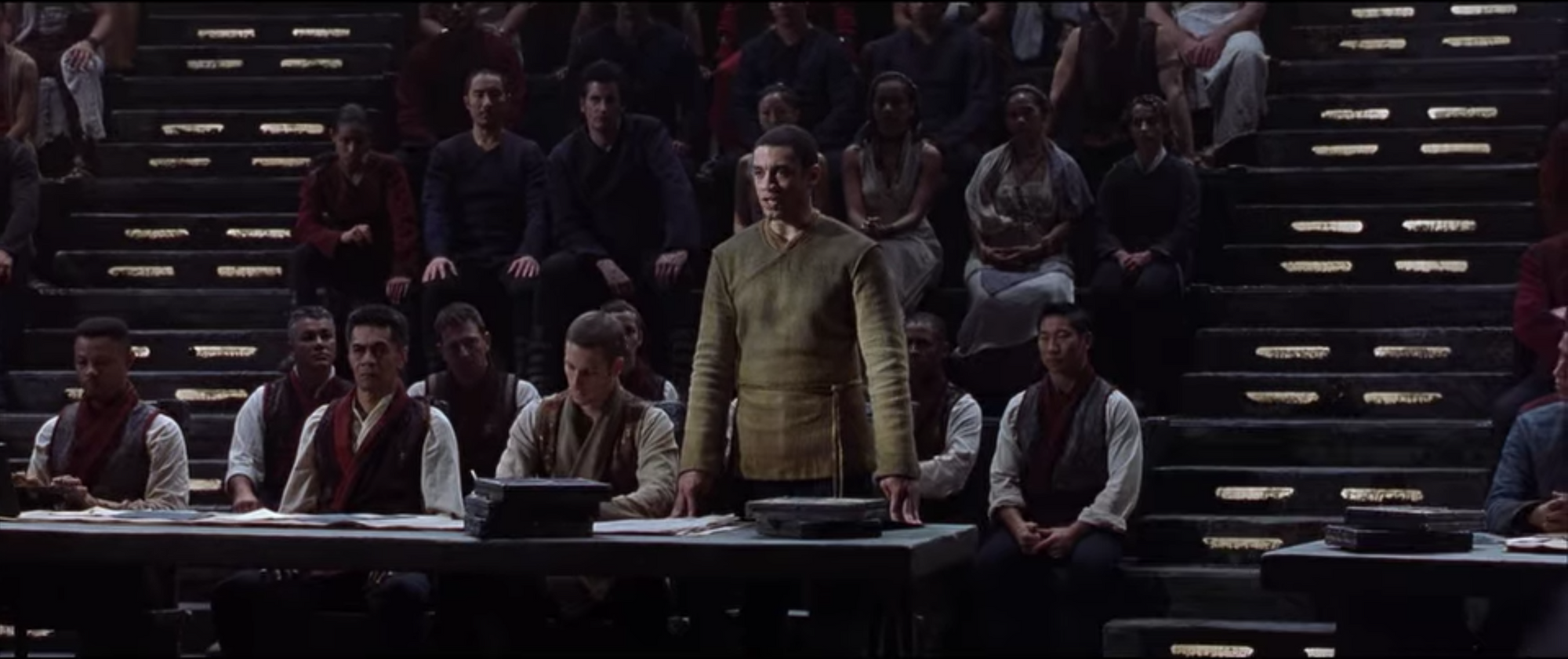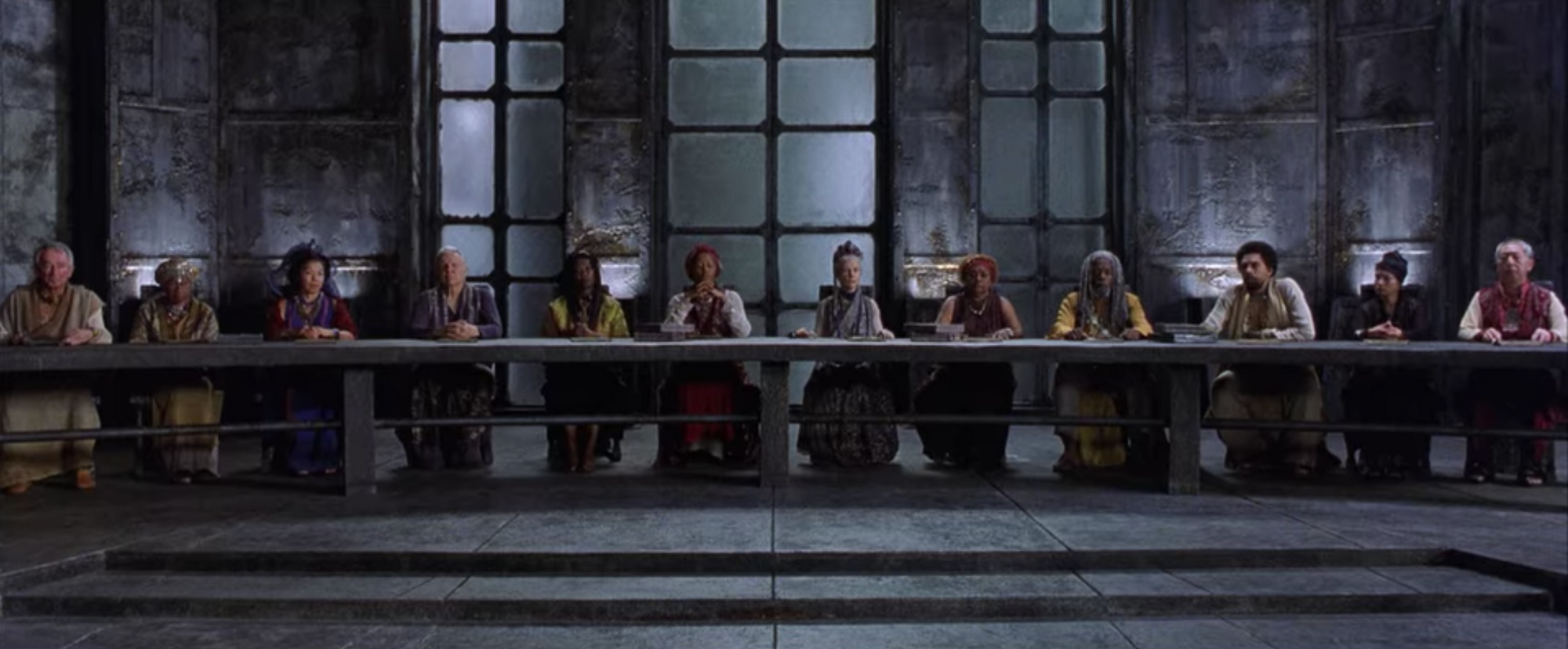How do you create an oasis?
searching for signs of humanity in "The Matrix" and in 2020

I watched The Matrix for the first time ever this weekend, and then immediately again the following day. I’m not here to tell you how good it is. It’s way too late for that, of course. It’s like when I started listening to the Beach Boys and had to be like “What do I do with this information?” You can’t tweet “The Beach Boys made some amazing music.” Society already made that discovery before I was born. Anyway, you should watch The Matrix if you haven’t. I won’t spoil anything here that you don’t already know about it from cultural context over the last 20 years.
I loved The Matrix so much and was so caught up in the world that it created that I decided to watch its sequels, and I don’t recommend that at all. I realized my mistake almost immediately into The Matrix Reloaded. I found as many things to question or hate in this film as I did things to ponder and love in the first. I’m not here to talk about that, either, because that ground has also been covered extensively. (For instance, I heartily endorse these suggested edits to the sequels, which a friend sent to me after listening to me rant about the movie off and on for several hours.) Rather than complain about the entire film, then, I’d just like to focus on one specific element.
All sci-fi reflects some aspect of our humanity, and The Matrix examines why we accept what is presented as reality. It’s a question so fundamentally human that we have evidence of us asking it for thousands of years — the Allegory of the Cave was written around 375 BC! The theme of The Matrix Reloaded isn’t as straightforward, nor as well-executed. Neo’s humanity is so sidelined that it results in the film having almost no stakes, but we are presented with clear stakes for humanity at large: the city of Zion faces an impending attack.
We’d learned in the first movie that Zion was the last remaining human city in the real world, but it’s not until The Matrix Reloaded that we actually see Zion. And I hate it!


We’re a hundred years in the future, free from the confines of the Matrix reality, and this is the oasis that remains: a washed-out steampunk dungeon clearly made from green screens and computers. We see the weary crew of the Nebuchadnezzar return from their small quarters aboard a steel ship trawling the underground pipes to the comfort of… a world of steel and underground pipes where people live in small quarters.
We don’t see any restaurants, parks, or libraries in Zion. But we do see a lot of mind-numbing bureaucracy. A by-the-books commander gets frustrated with his loose-cannon captain. Citizens sit through boring meetings with their city council.

We’re supposed to care about the threat to the city, but the city itself makes me depressed. As Ryan George said in his imagined pitch for the movie, “It’s a big cave where people slowly talk about philosophy and politics all the time” that “literally looks like hell.” We know that it’s the last refuge for free, living humans, but if I had the choice between living in Zion and being plugged into the Matrix, I think I’d choose the Matrix.
This section of the film also introduces one of the many additions that I absolutely didn’t want out of a Matrix movie, constant assertions that THIS Matrix FUCKS. Neo and Trinity swap clunky dialogue while they make out in an elevator. Stoic, focused Morpheus is caught up in a love triangle now. A new guy is introduced and gets a whole scene of arguing with his wife when he just wants to bang.
So I shouldn’t be surprised that when The Matrix Reloaded gives us one reminder of the humanity that needs to be protected from invading machines, it’s a sexy, primal dance rave (intercut with Neo and Trinity having non-metaphorical sex, something they apparently couldn’t do in the private quarters they had to themselves on the Nebuchadnezzar).
The first Matrix didn’t go into the nature of humanity itself too much, but it did have one explicit line on the topic, and it ties in with this scene too. Skeevy weirdo Mouse offers to arrange a “personal” meeting with his program, The Woman in the Red Dress, and when rebuked by his shipmates replies, “To deny our own impulses is to deny the very thing that makes us human.” I thought that line, spoken by a tiny androgynous person bragging about how well he created the perfect image of femininity, tied into the film’s overwhelming queer subtext. But The Matrix Reloaded is explicitly hetero, occasionally sensual but not kinky. During the rave, the camera focuses on a few couples, all straight. Neo and Trinity, with complete privacy at last, have missionary sex.
It’s not that I necessarily want more from the scene — I’m not surprised that in 2003, a major studio blockbuster was heteronormative — but I do want more from Zion. I want other scenes depicting happiness for the free humans. I hate the neutrals that everyone wears and I’m furious that there are no plants to be seen, not even moss.
If humans had to unite to create one final city, what should it look like? Of course I relate this to the pandemic, because everything now gets filtered through the lens of our specific dystopia. I might have been harsher on the dancing scene before all of this, but now I understand why every comment on every upload of that scene is something along the lines of “all of us the second coronavirus is over.” The freedom to dance together joyously in large groups is a freedom. But does Zion have any art or culture? Where is the baking? (We get the briefest glimpse of a platter of nondescript food passed around in Zion, but I want culinary delights.) What do the people of Zion do to pass the time, besides attend city council meetings and bicker with their wives? Where do their children play? I’ve been very lucky throughout this pandemic, unbelievably lucky. I feel that most clearly when I go to the park, sitting alone on my blanket at least six feet away from the other blankets, watching dogs run around the grass. So Zion is underground and the sky has been ruined in this version of the world. Fine. Use your future technology to put down some Astroturf! Give the people some soft, comfortable space.
I’ve been wondering a lot if our world would take the opportunity of societal collapse to rebuild something better. I had more hope for that in March, when everything felt so unprecedented that it was easier to trick myself into thinking that surely something must be done. I still get tricked sometimes, like when I’m appreciating a day in the park and have to remind myself that I’m there because I’m not an essential worker risking my life so others can still bake and watch movies and live. I’m reminded of reality when I go on Twitter to see another video of police officers murdering citizens in cold blood.
Despite the annoyances and mundanities of our society that live on in theirs, there is one aspect of Zion that was truly utopian: its racial diversity. Zion’s populace is the most diverse I’ve ever seen in a film, and black and Asian men and women are seen in the majority of positions of power as ship captains and council members.

The point of speculative fiction is to ask “What if?” and see how our ideas of the world hold up. On the news and in Zion, I see a society that’s lacking. I want better for us. I want a safe space that’s comfortable and stimulating and kind. I want less violence and more freedom of expression. I still think our humanity is worth protecting.
More like this:
“Whose faces will Face Off in the new Face/Off??”
